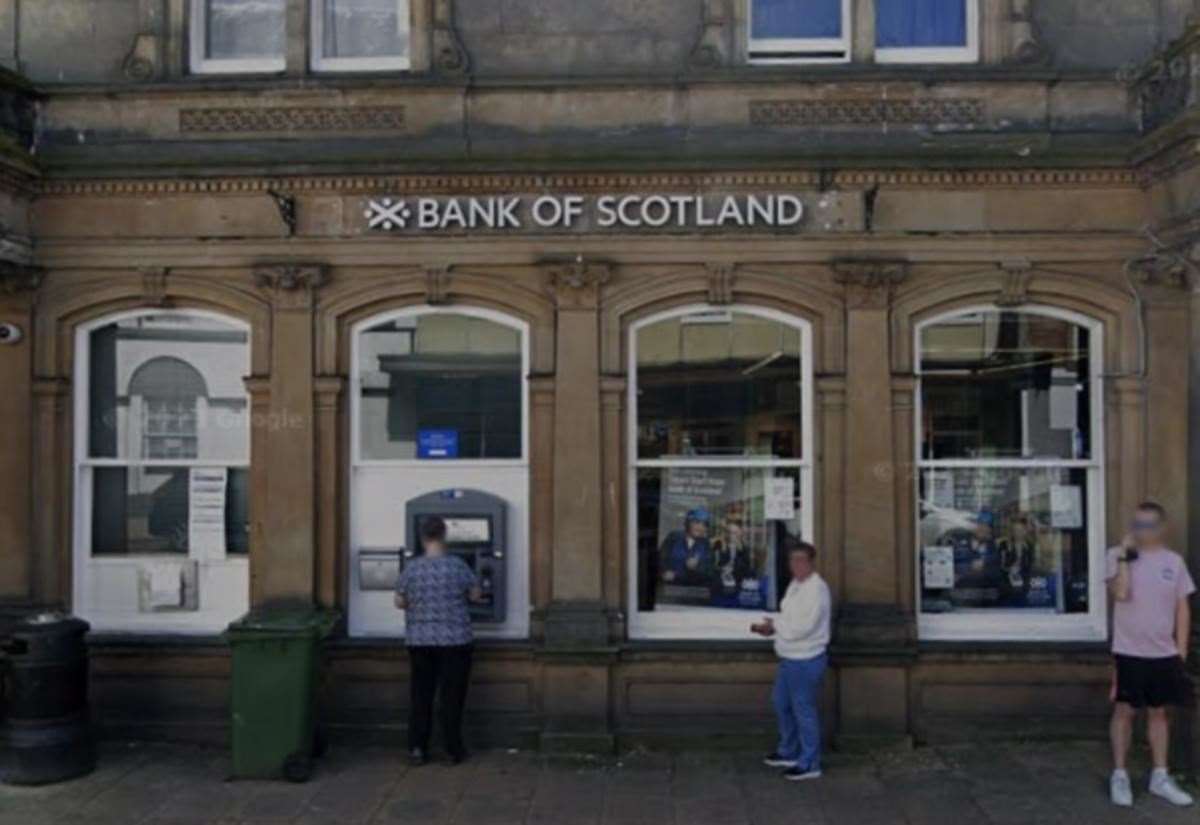By Melissa Maynard
Copyright trinidadexpress

“This ban on the Virtual Assets Bill is taking us right back to the same situation we were in before, with nothing progressive to look forward to until 2028.”—Mark Pereira, WamNow Technologies Ltd.
Stakeholders in Trinidad and Tobago’s growing financial technology (fintech) and digital asset sector are warning that the Government’s proposed Virtual Assets and Virtual Asset Service Providers Bill, 2025 could stifle innovation and punish legitimate businesses rather than curb bad actors.
The bill was tabled in Parliament on September 12 by Finance Minister Davendranath Tancoo.
Jarryon Paul, founder of Sunshine, a company that would be directly affected by the legislation, told Express Business last week that the bill effectively amounts to a ban on the entire industry.
“The bill, instead of being something that allows for good actors in the space…is basically calling for a ban across the entire industry, and I think this is something that is not going to be good for us (or)…Trinidad and Tobago on a whole,” he said.
According to the bill, published on Parliament’s website, its provisions align with the Financial Action Task Force (FATF) Recommendations 15 and 16, which encourage regulation of virtual asset service providers (VASPs) to mitigate money laundering and terrorism financing risks and promote traceability of wire transfers. The document notes that no comprehensive legislative framework currently regulates virtual assets in Trinidad and Tobago, though the Securities Act applies where a virtual asset falls under the definition of a “security.”
‘Extremely counterproductive’
Paul said the bill would penalise legitimate companies rather than stop bad actors. Under its provisions, companies must register with the TTSEC within one month, close operations within three months, or face fines up to $5 million and five years imprisonment. TTSEC licences cannot be granted until 2028.
Since launching Sunshine in 2022, Paul said the company has engaged with the TTSEC, Central Bank, and FIU and implemented best practices from day one, including transaction monitoring and compliance measures. He highlighted examples from the United States, Europe, Bermuda, and the Bahamas, where legislation balances innovation with consumer protection.
“While looking at the other jurisdictions and their legislations so that we can pattern best as possible, we knew one day that Trinidad and Tobago would pass legislation and we would apply and go through the process; but to actually state that this is actually going to be banned—no one can operate the cryptocurrency—it is extremely counterproductive to Trinidad and Tobago. So, our business will be forced to close,” he said.
Paul said the company has reached out to the Minister of Finance, the Attorney General, the Opposition Leader and independent senators. He noted that no responses came from the Minister of Finance or the Attorney General, but he said “two independent senators were very sympathetic” to the company’s concerns, noting that was “very encouraging.”
He added: “Government has the majority of seats, so if they wanted to push something like this through, they could. So, our position is to sensitise the public on what is happening…and what’s at stake.”
In an earlier news release, Sunshine acknowledged that the bill seeks to regulate the conduct of business relating to virtual assets and service providers.
“While Sunshine unequivocally supports the smart and effective regulation of the digital asset industry, the company believes this bill in its present form is counterproductive. Instead of creating a framework for responsible growth, it risks halting the entire industry, effectively telling operators to ‘stop everything’,” it said.
Sunshine has served approximately 2,000 customers from this country, providing safe access to US dollar–denominated stablecoins like USDT and USDC.
It said Sunshine has implemented full Know Your Customer (KYC) procedures, robust anti-money laundering and counterterrorism financing practices, and rigorous transaction monitoring and sanctions screening, mirroring the standards of traditional financial institutions. “We took these steps not because the law forced us to, but because we care deeply about our customers and the long-term health of this emerging industry,” Paul said.
What are stablecoins?
Stablecoins are a type of cryptocurrency designed to maintain a stable value by pegging to fiat currencies, commodities, or financial instruments, aiming to offer a less volatile alternative to cryptocurrencies like Bitcoin, according to Investopedia.
Explaining stablecoins, Paul said:
“Cryptocurrency is the wide category. Inside of there, you have things like Bitcoin…but there is also a very specific class of cryptocurrency known as the stablecoin… it is a cryptocurrency and it is 1:1, so it matches 1:1 with a national dollar.”
“The only cryptocurrency we deal with is this type of cryptocurrency called a stablecoin; and the only type of stablecoin we deal with are US dollar-denominated stablecoins; so that is what our business is based on. We buy and sell US-denominated dollar stablecoins, which are all the USDT and USDC. So, it is like the cryptocurrency version of the US dollar.”
Asked about the benefits, Paul explained:
“For example, we hear about the US dollar problem that we face in T&T for so long. Why our customers must come to us is maybe they went to the bank and they were unable to access US dollars… We don’t provide US dollars—but we can provide USDT, or …USDC.”
USDT is the currency code for the cryptocurrency stablecoin Tether, launched by the company Tether Limited Inc in 2014, which is pegged to the US dollar. Said Paul:
“We provide USDT; we don’t provide US dollar—we provide a proxy to that dollar in the form of a stablecoin. So, our customers could actually purchase USDT from us with TT dollars.”
He explained that stablecoins allow for fast, inexpensive transfers:
“You can move a million dollars in one second for one cent—that is the benefit of stablecoin…it is a new way to actually store money, move money, [changing] the speed at which you could move the money and the cost at which you could move the money.”
“This process is inherently global…money can be moved through the digital wallet from one country to another. I can move money from Trinidad and Tobago via stablecoin in one second to the United States for one cent or three cents, from wallet to wallet. It doesn’t rely on the traditional banking ways. It actually relies on the stablecoin networks that exist behind the scenes.”
Paul said withdrawals can take place, too. “This is why we exist; because people say: ‘Okay, I have stablecoins—how do I get TT dollars?’ Or, ‘I have TT dollars—how do I get stablecoins?’….we provide that service…for someone to go from USDT to TTD, or from TTD to USDT. That is why we have a business—because we found that people are demanding the USDT.” He believes the public needs to be educated on it, which his business aims to do.
‘Entire world of virtual assets is innovative’
Sharing similar sentiments, a local tech entrepreneur and founder of a regulated fintech company has expressed deep concern over the newly proposed Virtual Asset Bill, which he says threatens to derail years of progress in financial technology innovation in Trinidad and Tobago.
Mark Pereira of WamNow Technologies Ltd, whose company operates under an Electronic Money Issuer (EMI) licence from the Central Bank, has been spearheading efforts to create digital solutions for underserved communities through initiatives such as enabling spaces, coding workshops, and most notably, a payments app called WAMNOW.
“But one of the major things we always missed was a virtual asset bill because we wanted to enable the blockchain, the stablecoin, the virtual asset trading,” he said.
However, he noted: “There was never an enabling framework to do so. And because of that, there was always a risk of us being debanked. So, the banks [are] essentially saying: you’re too risky for us because you do business that’s against our policies—knowing very well how beneficial virtual assets are because of their ability to access forex through the mechanism.
“So, what we have been doing is assisting in virtual asset trading and access to forex liquidity through these virtual assets locally. And we’ve been doing that from a regulatory standpoint. So, end-to-end, our customers are always identified and are traded within our platform,” he explained.
“The entire world of virtual assets is innovative, and it’s likely ahead of banking; but this ban on the virtual assets bill is taking us right back to the same situation we were in before, with nothing progressive to look forward to until 2028, because they’re banning,” he said.
At the meeting with the Central Bank, he said a TT stablecoin was proposed.
“The main reason why we want to issue Trinidad and Tobago virtual assets is because we’ll be seen as the regional fintech hub because we can already grasp this asset. And as a country, we can utilise it as a beneficial tool to improve the whole forex situation. And the reason why it’s beneficial is because currently, the rails that we use—which is our current banking rails—are inadequate enough,” he said.
According to Pereira, people do not want to bring US dollars into the country if another competitor bank in the US “has given me the ability to do all my online transactions, to invest in stocks, to send money to our business without having to walk into a bank. If I’m being offered these banking services from foreign banks, and then Trinidadian banks …tell you: yes, you only have US$10,000 in your account, but you can’t access that because we don’t have the means to do so.”
He stressed that this does not attract foreign exchange, whereas virtual assets do, because individuals have immediate access to their funds. They can transfer money on weekends and do not have to wait two to three days.



